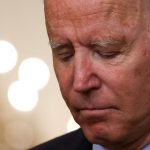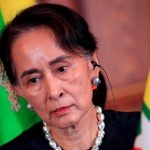Pakistan’s newly-formed parliament has elected Shehbaz Sharif as the country’s prime minister for the second time.
Mr Sharif won 201 votes from Pakistan’s National Assembly, comfortably ahead of Omar Ayub, the candidate backed by jailed former prime minister Imran Khan, who secured 92 votes.
It means the 72-year-old will resume the role he had until August, when parliament was dissolved and a caretaker government was put in charge until last month’s elections.
Mr Sharif was named premier despite his elder brother Nawaz Sharif winning a seat in parliament and being favourite for the top job.
Nawaz did not want to lead a minority coalition government, having enjoyed majorities in his three previous stints as PM, his daughter Maryam said on X.
The brothers’ Pakistan Muslim League-Nawaz party won fewer seats than Khan’s allies in the February election – but coalition support was enough to get them a majority.
The election saw arrests, violence, an internet blackout and delayed results, leading to claims from Khan’s allies that the vote was rigged.
Pakistan elections: Two of country’s biggest political parties agree to coalition government
Imran Khan’s sister says Nawaz Sharif’s claim to election victory is an ‘insult to Pakistanis’
Pakistan is in political limbo after election upset – so what’s next?
They continued their protests in parliament as Mr Sharif’s premiership was confirmed, calling him a “vote thief” and shouting “shame”.
Mr Sharif offered “reconciliation”, adding: “Let us sit together to work for the betterment of Pakistan.” But his words were met by more shouting.
Meanwhile, his government faces a number of challenges: a struggling economy, a surge in militant attacks, tricky relations with Pakistan’s Taliban-run neighbour Afghanistan, and aging infrastructure.
Financially, Pakistan relies heavily on help from outside – wealthy states such as China and Saudi Arabia, as well as the International Monetary Fund.
An IMF bailout negotiated during Mr Sharif’s previous term will expire at the end of this month and he will need to strike another deal while also addressing growing anger over the rising cost of living.






















